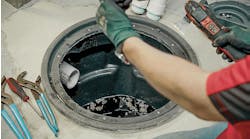During the economic crisis of 2008, the credit market to businesses dried up. However, alternative financing for businesses came to the rescue. Merchant cash advance loans, and invoice financing stepped in to fill the void left by the banks. These loans are a great first step solution for companies; but they are just that, a first step solution. The loans or “advances,” as they are known in the industry, are there to solve short-term cash issues for small businesses.
However, if a business does not have a plan to move past this type of funding, they are probably going to fail.
Merchant cash advance loans for businesses are the equivalent of payday loans for consumers. Merchant cash advance loans are there when you need them and can cost around 30% in interest by the time the loans are repaid. Just like payday loans, they solve a short-term need for borrowers in a cash crunch; however, for many of these borrowers the cure is worse than the disease.
Accounts receivable and purchase order loans are a great way to expedite cash flow because these loans allow business owners to borrow against invoices. Many business owners that perform government and commercial contracts must often wait 30, 60, and sometimes up to 90 days to be paid. In order for these entrepreneurs to stay in business or allow them to take on more business, accounts receivable and purchase order loans are a viable solution.
The rates on this type of financing on average are 2% of the value of the invoice. Two percent may sound like a good number; however, when it is 2% of every invoice and a typical contractor submits several invoices every month, the total interest payments for the year is astronomical. Therefore, accounts receivable and purchase order financing is a great first solution but the entrepreneur has to find less expensive and more patient sources of capital to continue to grow and sustain their businesses.
Unfortunately, lower cost and more patient capital can only be obtained through two sources: Small Business Administration secured loans or private capital. Most small business owners do not know where to look or how to access private capital and SBA loans are some of the most challenging loans to qualify for, with a large percentage of the business owners that apply being turned away.
Merchant cash advance and accounts receivable loans are very profitable for lenders, especially now with the securitization of these loans. As profit margins increase for some lenders, it will put pressure on other lenders to put more money on the street and at that point we are in the boom portion of this vicious cycle. I think it would be very naïve not to consider that lenders becoming more interested in quantity instead of quality, just like what happened in the subprime mortgage industry. The small business community will soon become saturated with these loans because they are easily accessible albeit outrageously expensive. As a result, these businesses will have some short-term cash flow pressures resolved, but ultimately become crippled by these types of loans.
Borrowers that become dependent on these types of loans but fail to produce significant growth in profits will, unfortunately, fail and more significantly, default. This painfully reminds me of the refinance and cash-out boom on residential real estate. Borrowers could borrow more than they could afford and supplement their payments with the cash out, and then refinance again when the money ran out. That only worked as long as real estate prices continued to climb and lenders continued to lend, but nobody linked the two. Real estate values only went up based on the lenders’ willingness to keep lending and, without the lending, the values dropped, thus causing the Great Recession.
Here is our current situation: Small businesses create demand for these loans, and as long as the entrepreneurs can get these loans, they are going to repay these loans. However, once the defaults begin, there will be a reduced supply of capital from investors for these loans and, as a result, fewer contractors will have access to these loans thus causing more defaults. As the supply of these loans drops, the rise in business owners defaulting will increase until there is no longer a market for these loans and every business owner dependent on these loans eventually defaults.
Small businesses are the engine of growth for jobs in the U.S. and with the bubble in alternative financing to businesses starting to form, the bust is not far away. President Obama and Congress need to put a comprehensive bill in place to help get patient, less-expensive capital in to the hands of entrepreneurs. If the government fails to act, the bust will destroy businesses and ultimately destroy jobs and communities. Moreover, at the time of this writing, I cannot imagine what type of bailout from the government or the Federal Reserve could stabilize a collapse of lending of this magnitude if the government does not step in now.
The new SEC rule allowing businesses to publicly solicit capital is a good first step but it needs to be coupled with a tax incentive to attract investors. In addition, Congress should consider less stringent credit requirements for SBA secured loans. Many entrepreneurs suffered losses and setbacks during the Great Recession and, in return, some of them were late on payments causing their credit scores to drop. Washington provided massive bailouts to big companies and the banks, and Washington even went the extra mile with homeowners and the unemployed. Washington did not, however, bailout small businesses, so I believe at the minimum that Washington should consider reducing the FICO score requirements for entrepreneurs seeking SBA loans, as long as the business is able to meet all of the other SBA lending requirements.
Washington must do something to assist small businesses to access less expensive, more patient forms of capital and stave off this new wave of predatory lending that our entrepreneurs cannot afford to live without.
Troy Holland is CEO of HIC Financial Group, Baltimore, Maryland. He can be reached at 410/412-3322 Ext. 301, or at 443/341-4308

